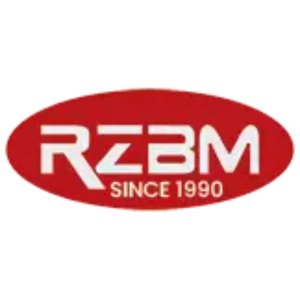
Rubaiyazueaid1157
Uploaded on Dec 24, 2024
Category
Business
Danfoss solenoid valves are crucial for sustainable building management, ensuring energy efficiency and reliable control of heating, ventilation, and air conditioning (HVAC) systems. They optimize performance, reduce energy consumption, and enhance overall system sustainability.
Category
Business
Why Danfoss Solenoid Valves are Essential for Sustainable Building Management
Why Danfoss
Solenoid Valves are
Essential for
Sustainable Building
Management?
As the globe moves toward sustainability, the demand for energy-efficient and
environmentally friendly construction solutions has never been greater. Building
managers, engineers, and sustainability advocates recognize the importance of
incorporating smart and sustainable components into building systems.
The solenoid valve is an often-overlooked but vital component in this quest. Danfoss
solenoid valves are among the top performers in this field due to their dependability,
precision, and support for sustainable building management. Let's look at why Danfoss
solenoid valves are such an important tool for designing and maintaining sustainable,
energy-efficient buildings.
Accurate fluid and gas control reduces waste
Danfoss solenoid valves excel at regulating liquid and gas flow, which is critical for
controlling heating, ventilation, and air conditioning (HVAC) systems, water
management, and other utility activities. These valves assist prevent wasted energy
and resources by allowing for exact control.
For example, Danfoss solenoid valves in HVAC systems ensure that just the necessary
amount of refrigerant goes through the system. This prevents excessive use of cooling
resources, ensuring that energy consumption remains low while meeting cooling or
heating requirements. This tight regulations minimize the carbon footprint of HVAC
operations, which contributes to a reduction in the building's total environmental
effect.
2. High energy efficiency and low power consumption
Energy efficiency is critical in sustainable building management, and each component
counts. Danfoss solenoid valves are designed for low power consumption, requiring
less energy to operate than standard mechanical valves. Solenoid valves employ
electromagnetism to open and close, and the electric coil requires only a little amount
of electricity to operate.
This efficiency results in significant energy savings in large commercial or industrial
buildings with several valves in operation. These valves can assist building managers
focus on sustainability by lowering energy expenses and reducing strain on the
building's electrical system, which aligns with sustainability goals.
3. Improved System Automation to Optimize
Operation
Automation is a key feature of modern, sustainable building management. Danfoss
solenoid valves work with a variety of smart building management systems (BMS),
allowing building operators to program and monitor fluid and gas flow remotely.
Integrating these valves with automation systems allows you to build exact schedules
and alter settings based on real-time data.
HVAC system solenoid valves, for example, can be programmed to modify flow rates
in response to occupancy or temperature sensors. They can be configured in water
management systems to adapt to water levels or pressure, ensuring that water is used
efficiently and preventing waste. Such automation not only saves resources, but it also
lowers the need for manual intervention, lowering labor and maintenance costs.
4. Durability and low-maintenance requirements
A sustainable structure should include enduring components that require little
maintenance. Danfoss solenoid valves are made from high-quality materials and
designed to withstand harsh circumstances. This resilience ensures that they can
withstand repeated use in construction systems without failing.
Their low-maintenance nature makes them ideal for sustainable building
management. Fewer repairs mean fewer parts replacements and less frequent
technician visits, which saves resources and reduces the environmental effect of
maintenance. Furthermore, minimal downtime guarantees that building systems
remain continually efficient, promoting a steady and sustainable operation.
5. Contributing to Water Conservation Goals
Water conservation is an essential component of building sustainability, particularly in
locations where water scarcity is a concern. Danfoss solenoid valves help achieve this
goal by providing precise control over water flow in irrigation, water supply, and
plumbing systems.
For example, in a commercial context, these valves can control water flow in
restrooms and kitchens, ensuring that only the appropriate amount is used and
preventing leakage. Solenoid valves in irrigation systems can help maintain ideal soil
moisture levels without overwatering, hence minimizing water use and waste.
6. Supporting Green Building Certification
Green certifications like LEED (Leadership in Energy and Environmental Design) and
BREEAM (Building Research Establishment Environmental Assessment Method) are
important benchmarks for sustainable buildings. Using energy-efficient, resource-
conserving components such as Danfoss solenoid valves can improve a building's
certification score.
Buildings with energy-efficient HVAC systems, water-saving technologies, and low-
maintenance requirements are more likely to fulfill or surpass these certification
criteria. This not only improves the building's sustainability credentials, but it can also
increase its market value and attract environmentally concerned tenants and clients.
7. Flexibility of Building Systems
One of the distinguishing features of Danfoss solenoid valves is their adaptability.
These valves can be used for a variety of building systems, including HVAC, water
management, and fire suppression. This adaptability allows for a more streamlined
approach to sustainability, since building operators can rely on a single brand and
valve type to suit numerous requirements.
Danfoss solenoid valves come in a variety of styles, including two-way and three-way
valves, and are compatible with a wide range of pressures, temperatures, and fluid
types. This versatility implies that building systems can be adjusted to specific
sustainability requirements, hence promoting effective and environmentally
responsible building management.
Conclusion
As sustainable building management becomes the new standard, selecting efficient
and ecologically friendly components is critical. Danfoss solenoid valves offer
precision, longevity, energy economy, and interoperability with automation systems,
making them essential for sustainable building operations.
Incorporating Danfoss solenoid valves into building systems not only helps to achieve
environmental goals, but it also lowers operational costs, maintenance needs, and
resource consumption. In essence, these valves are more than just a component; they
represent an investment in the future of sustainable, responsible building
management.
Thanks!

Comments